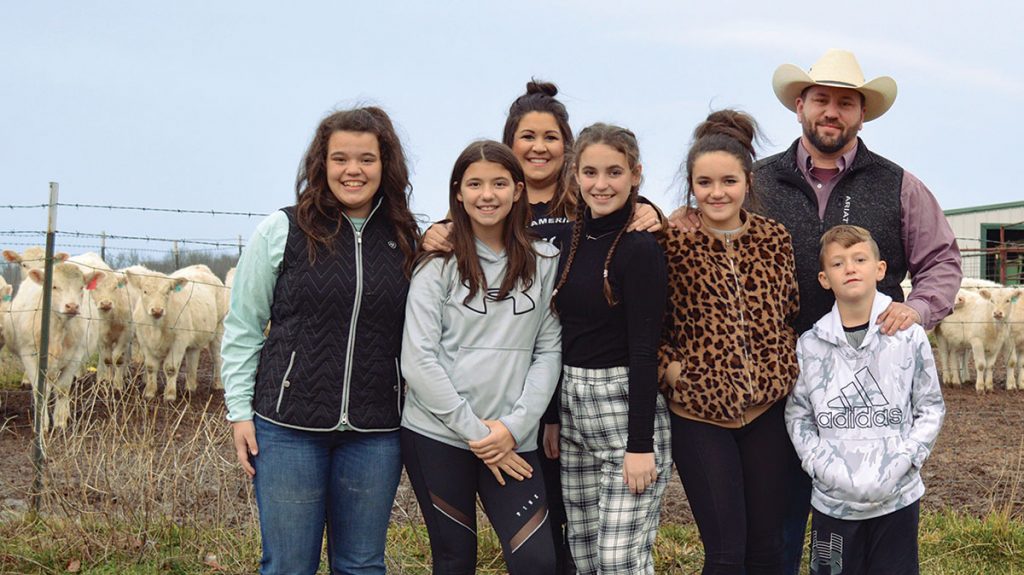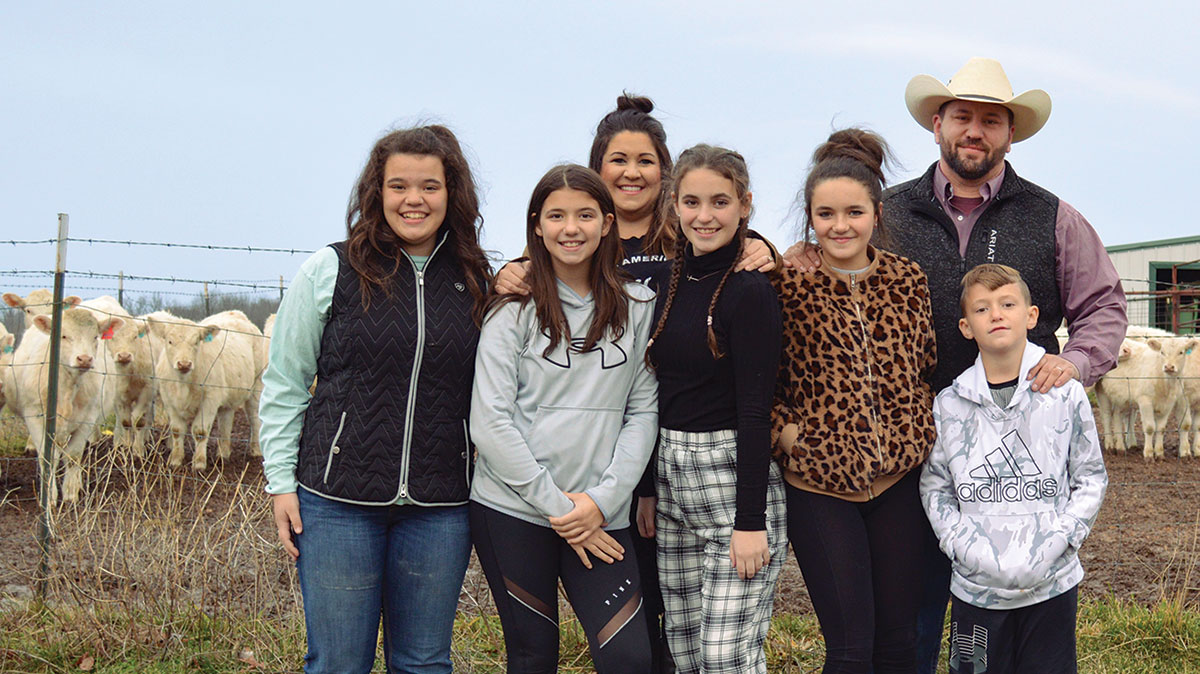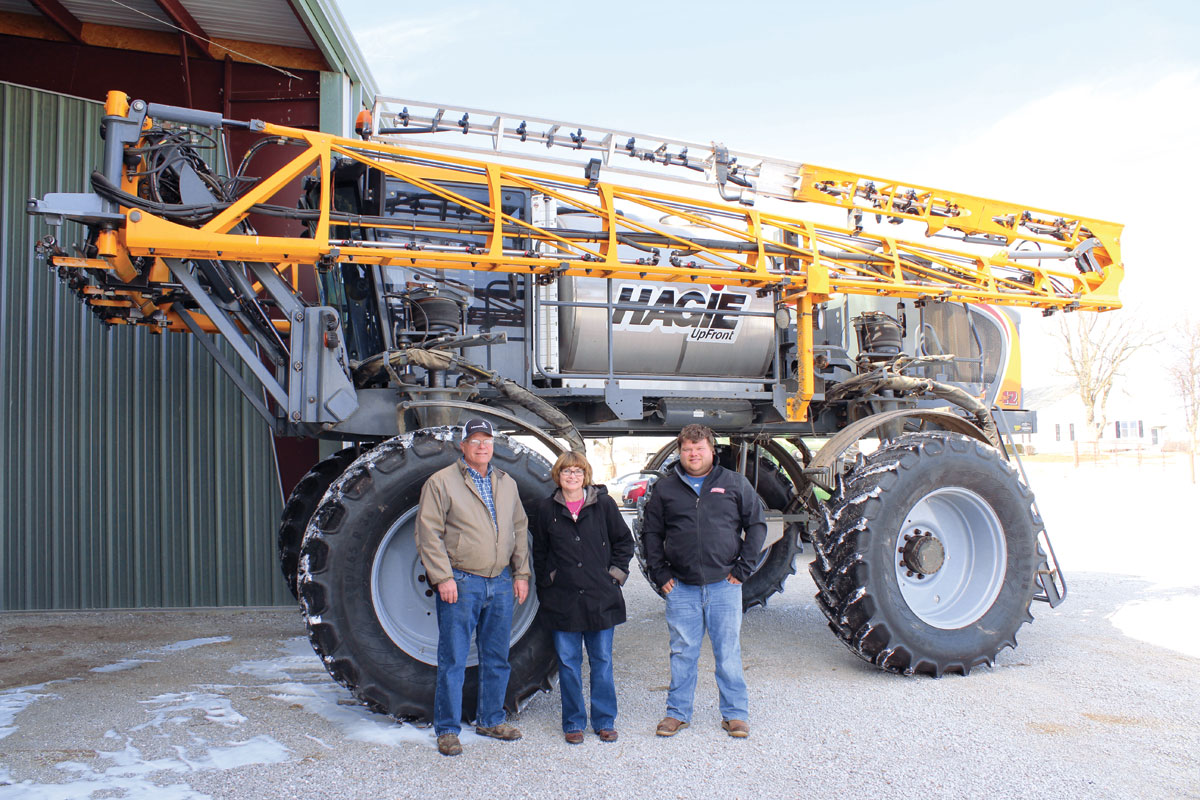
The Morris family moved from commercial cattle to registered Charolais
Though 2020 proved to be a year of unexpected change for many, the Morris family in Fair Grove, Mo., embraced 2020 with a planned change to their farming operation.
John and Kristin Morris, along with their five children, spent the year jump-starting a registered Charolais herd.
Morris Farms has operated with commercial cattle for many years. But the emphasis for the family now is on raising registered breeding stock. After almost a year of building up, about two-thirds of Morris Farms’ herd is registered Charolais.
“We made the decision last year to start our registered cows. We have always run Charolais bulls on our black and red cows. We always kept up with the latest sires, so it made sense,” John said.
In February 2020, the Morrises sold all their black commercial cattle and began buying registered Charolais bred heifers.
“We started from scratch basically,” John said. The family also invested in embryos. “We looked all over the United States for our embryos. We looked for embryos that would be good cow makers.”
Morris Farms used some of its commercial cattle as recips for the Charolais embryos. The Morris family looks forward to seeing their embryo calves being born this spring. “We bought the embryos and then implanted them back in July looking to try to make good cows for the future,” John commented.
When it comes to selecting females for their registered herd, Morris Farms also puts disposition at the top of the list.
“We have had bulls and heifers that have had great pedigrees but their disposition has been off and hard to handle. With our children helping feed and work our cattle – we don’t put up with that,” John explained.
After docility, the Morrises examine the replacement prospect’s pedigree. They look for livestock with calving ease, lower birth weights and high weaning weights. “People are not wanting 100-pound birth weight Charolais calves anymore. They are wanting a calf that is going to have no problem at birth but has plenty of grow in him after he hits the ground. Because whether you are a registered breeder or a commercial cattleman pounds are what pays,” John stated.
Lastly, the Morris family focuses on an animal’s fertility. They assess how well a female settles in AI breeding and how well she raises a calf. Solid fertility and maternal characteristics are a must for a female in Morris Farms herd.
Morris Farms’ commercial cattle are mostly Beefmaster or Brangus-influence cows. The Morrises AI all their commercial cows to sexed Red Angus semen. Though the sexed semen is more expensive, the Morrises say it is worth it in order to ensure they have heifer calves. Their commercial Red Angus heifers sold better at market than their steers.
“Red Angus seems to be very popular right now. A couple of years ago we bought a Red Angus herd bull, I will tell you that the three-quarter Red Angus heifers with a quarter Beefmaster or quarter Brangus make great females and people want them,” John explained.
The family operates multiple farms in the Fair Grove, Mo., area with a total of 325 acres and 115 head of cattle. Even though the properties are fairly close to one another, the Morrises customize their management of each farm.
“We have learned not all of our farms are equal at providing nutrients and we have to put more work into some of them as opposed to our river bottom lands,” John commented.
John has participated in one of the USDA’s grazing schools and this year Morris Farms enrolled in the USDA’s grazing program. Part of the family’s new farm management plan in 2020 included the implementation of rotational grazing systems on their farms. In addition, they reduced the number of head per acre on their properties. The Morrises say those two management decisions have kept their farms better stocked with grass throughout the year.
John and Kristin say one of the most important lessons they have learned is the importance of being flexible and willing to change aspects of their cattle operation.
“Throughout our years of having and now raising our own cattle, we have learned it is beneficial to be adaptive to the market and what people are wanting,” John said.
Currently, Morris Farms relies on the assistance of local and national livestock marketers to help them sell their cattle. But their goal is to eventually host their own production sales.
“Our hope for Morris Farms is to one day be a big enough operation to produce quality registered and commercial bulls and heifers so that we can grow and host our own yearly cattle sale at our farm,” John commented.
Their oldest daughter, Hannah, recently started her own registered Charolais herd through Fair Grove High School’s FFA program. In the future, Kristin would like to move into producing registered Red Angus. For now, John and Kristin plan to continue growing their cattle company so it will remain for many generations to come.







